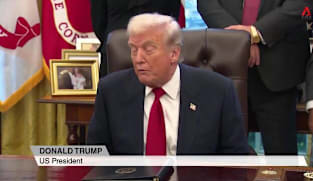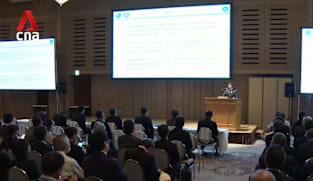Chee Hong Tat on Income Tax (Amendment) Bill
Singapore is proposing to amend its taxation of foreign-sourced income under a Bill moved for second reading in Parliament on Tuesday (Oct 3). Foreign-sourced disposal gains would be taxable when received in Singapore by entities of multinational enterprise groups that do not have economic substance here. Tighter rules will also apply to disposal gains arising from intellectual property rights, due to the higher mobility of such assets. Senior Minister of State for Finance Chee Hong Tat said the aim is not to tax capital gains but to align key areas of Singapore’s tax regime with international norms. The Bill also proposes to mandate the submission of income information to the Inland Revenue Authority of Singapore (IRAS) by intermediaries for self-employed persons (SEPs). This is to ease compliance and administration, and also make it easier and quicker for public agencies to identify those who would benefit from schemes such as the Workfare Income Supplement. The change would be implemented in phases based on the readiness of different sectors. It could also become easier for self-employed delivery workers to submit information for income tax. Those earning gross annual income of up to S$50,000 will be given the option to apply a prescribed deemed expense ratio or fixed expense deduction ratio to calculate their net income. This is already in place for taxi and private-hire car drivers as well as some commission agents. Finally, the Bill gives effect to changes required to implement the Enterprise Innovation Scheme which was announced in Budget 2023.
Singapore is proposing to amend its taxation of foreign-sourced income under a Bill moved for second reading in Parliament on Tuesday (Oct 3). Foreign-sourced disposal gains would be taxable when received in Singapore by entities of multinational enterprise groups that do not have economic substance here. Tighter rules will also apply to disposal gains arising from intellectual property rights, due to the higher mobility of such assets. Senior Minister of State for Finance Chee Hong Tat said the aim is not to tax capital gains but to align key areas of Singapore’s tax regime with international norms. The Bill also proposes to mandate the submission of income information to the Inland Revenue Authority of Singapore (IRAS) by intermediaries for self-employed persons (SEPs). This is to ease compliance and administration, and also make it easier and quicker for public agencies to identify those who would benefit from schemes such as the Workfare Income Supplement. The change would be implemented in phases based on the readiness of different sectors. It could also become easier for self-employed delivery workers to submit information for income tax. Those earning gross annual income of up to S$50,000 will be given the option to apply a prescribed deemed expense ratio or fixed expense deduction ratio to calculate their net income. This is already in place for taxi and private-hire car drivers as well as some commission agents. Finally, the Bill gives effect to changes required to implement the Enterprise Innovation Scheme which was announced in Budget 2023.



















